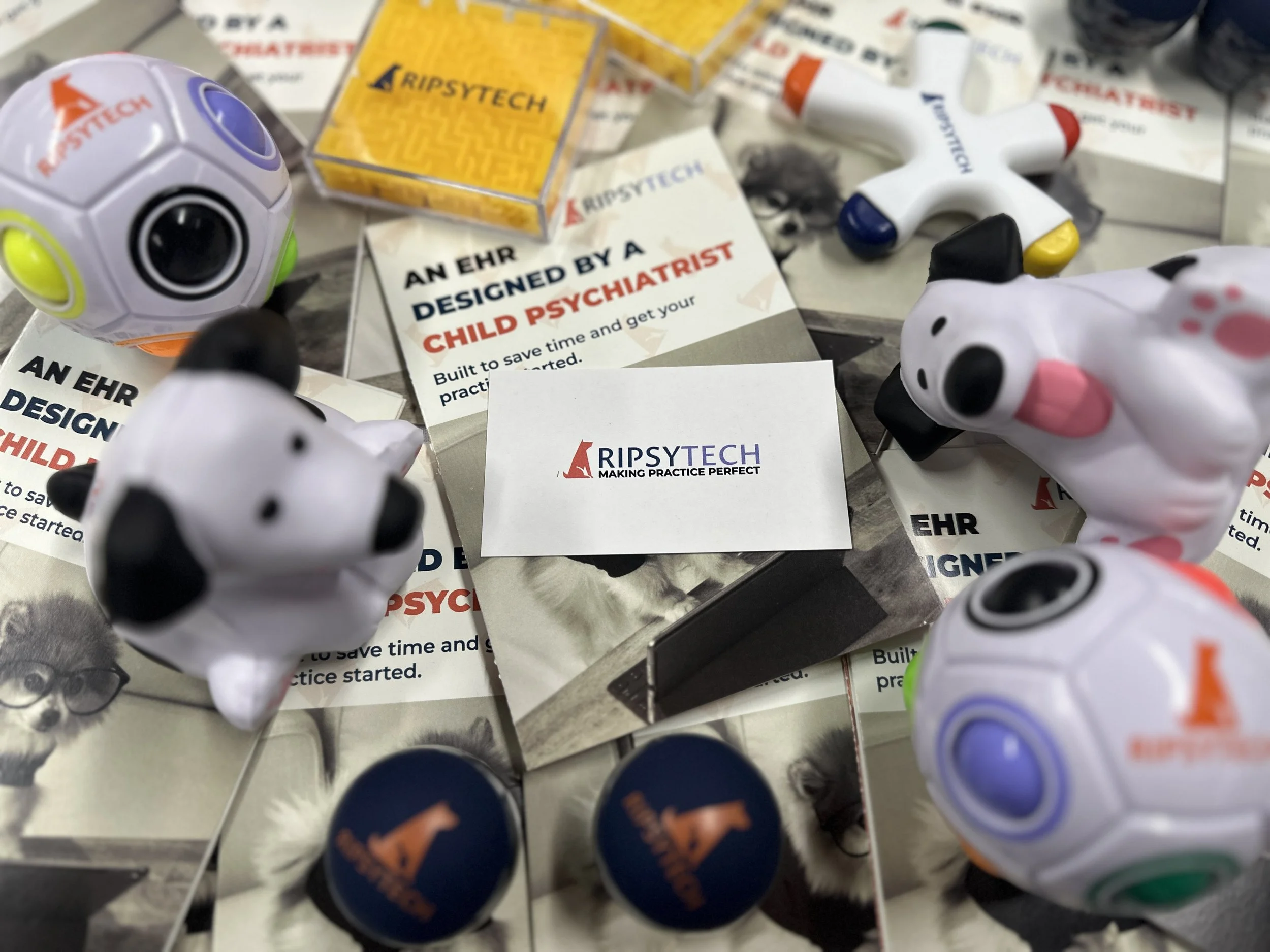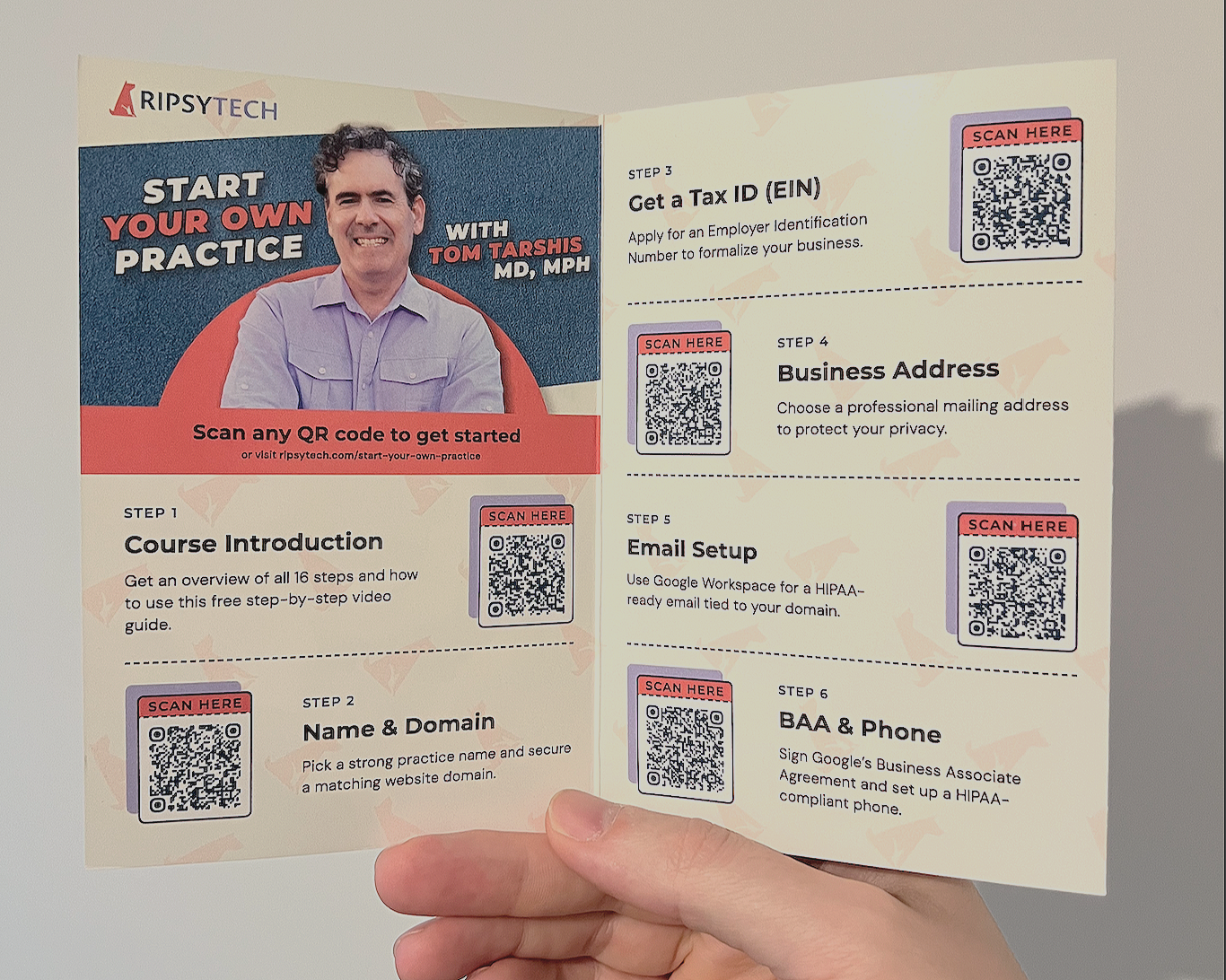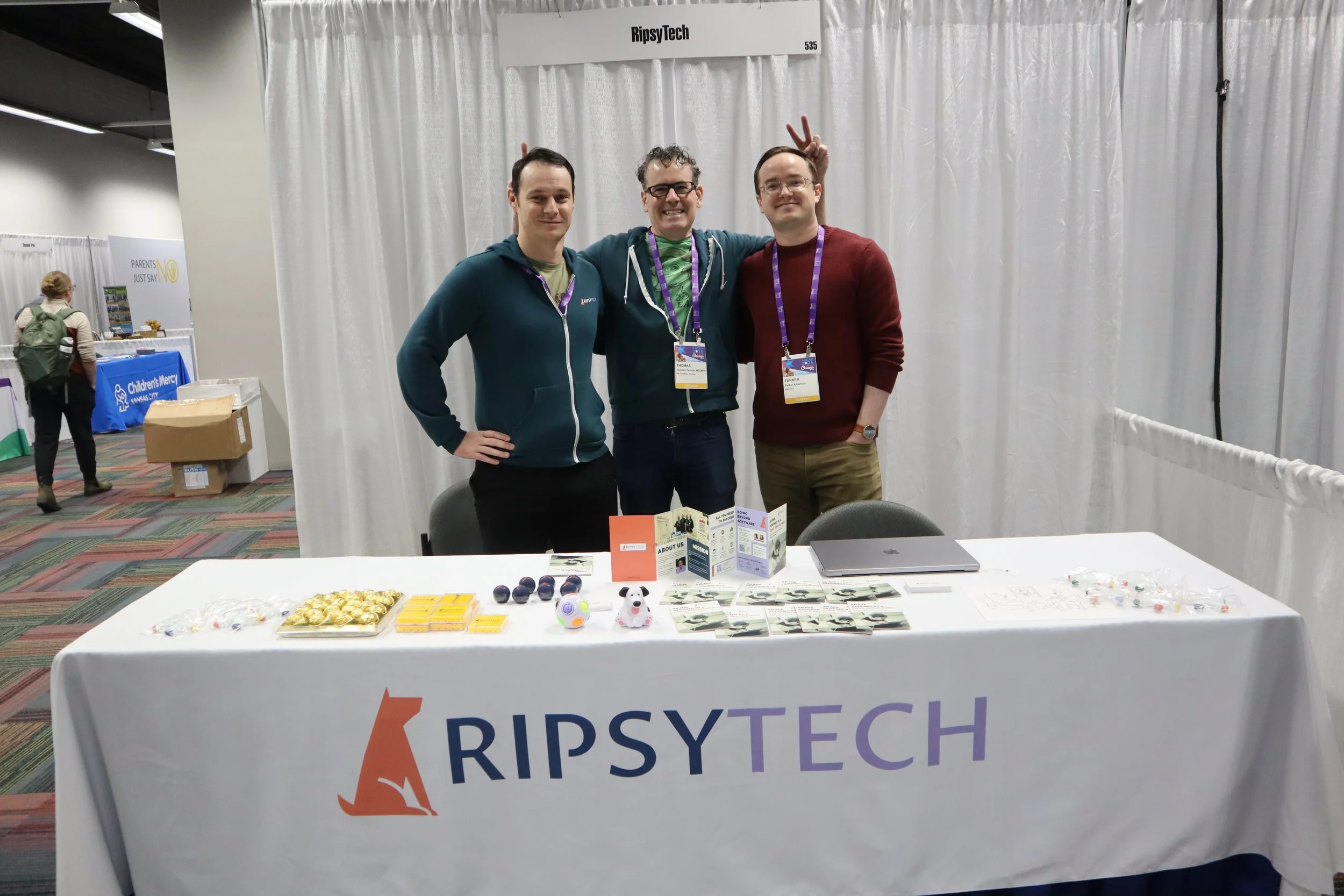What We Learned at AACAP 2025: Highlights from Chicago
Every year, the American Academy of Child and Adolescent Psychiatry (AACAP) conference brings together thousands of providers, trainees, and researchers from across the country. For us at RipsyTech, it’s a chance to reconnect with colleagues and customers, meet new clinicians at every stage of their careers, and see how emerging innovations are transforming the way providers deliver care.
This year, AACAP 2025 in Chicago was buzzing with new ideas and familiar faces. Whether you stopped by our booth to chat, grabbed one of our popular merch items, or caught us recording the podcast live, we’re grateful for every conversation we had about the challenges and innovations shaping child and adolescent psychiatry today.
The Ongoing Conversation Around AI
It’s no surprise that AI was one of the biggest themes at AACAP 2025. Across sessions and exhibit halls, providers were curious about how artificial intelligence can support their work, especially when it comes to clinical documentation, training, and outcomes tracking.
We heard thoughtful questions about whether AI can help analyze trends in patient progress or assist supervisors in providing feedback to trainees. These discussions reflected a broader shift in the field: clinicians are ready to explore practical, responsible uses of AI that fit naturally into their workflow.
At RipsyTech, that’s been our focus as well. Our tools, like the AI Scribe, AI Document Generator, and Supervisor Agent, are designed to improve how clinicians document and learn from their work while keeping their voice and clinical judgment at the center.
To see a short demo of how RipsyTech is leveraging AI in unique ways, check out our video showing off our AI document generator.
Practice Growth and Community
Beyond technology, practice growth was another major theme this year. Many attendees were exploring private practice for the first time, while others were looking for ways to refine their systems and stay organized as their clinics expand.
Those conversations aligned perfectly with the launch of our new free course, “Start Your Own Practice,” hosted by RipsyTech founder and child psychiatrist Dr. Tom Tarshis. The course walks through every step of building a mental health practice—from forming your business and setting up finances to managing policies and ensuring long-term sustainability.
If you haven’t already, you can start the course here: Start Your Own Practice Course.
Why We Keep Coming Back
This was RipsyTech’s third year exhibiting at AACAP, and it continues to be one of our favorite events.
Each year reminds us that while having a booth is a great way to share what’s new with RipsyTech, what truly matters are the connections we make with other professionals dedicated to improving the state of mental health care.
In fact, we had the chance to meet some of our customers in person for the first time, hear how about how using RipsyTech in their practices is going, and gather valuable feedback to guide future improvements.
But whether it was with a familiar face or a new face, having in-person conversations with like-minded professions is always a highlight to the year and a meaningful reminder of why we do what we do.
Closing Thoughts
If we spoke with you at AACAP, thank you for stopping by our booth and sharing your experiences with us. And if we missed you this year, we hope to see you next year at AACAP 2026 in Atlanta, Georgia!
Until then, you can listen to our full AACAP 2025 recap on the latest episode of the Sit and Stay Podcast and explore more free resources for running your practice at ripsytech.com.
Have a question or topic you’d like us to explore? Contact us at sitandstay@ripsytech.com.
And don’t forget to subscribe to the Sit and Stay Podcast for more insights on running a thriving mental health practice.
Looking for a health record solution that simplifies your workflows and supports your practice’s business needs?
RipsyTech has your back. Schedule a demo with us today.




